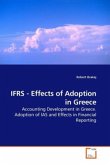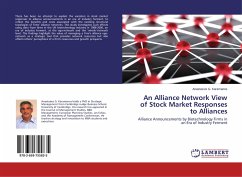The common basis for this work is that it deals with
money as a network good, i.e. that the value of a
specific currency or payment technique is dependent
on the number of users. This book analyzes monetary
choice in the light of this network aspect from
different perspectives.
The so-called network effects, which may result from
a network good, can work as reinforcement or
as an obstacle to spontaneously or politically
controlled changes in the monetary regime. As a
result, problems associated with the adoption of a
new currency or new (electronic) payment techniques
may arise.
The book includes both theoretical discussions as
well as a discussion about Carl Menger s monetary
theory and its connection to the network effects of
money. The last chapter of the book analyzes a
specific case, namely the Euro cash changeover
process that took place in 2002.
This work should be useful for people with a general
interest in choice of monetary standards, but also
for people who specifically want to read about the
Euro Cash changeover process or Carl Menger s
monetary theory.
money as a network good, i.e. that the value of a
specific currency or payment technique is dependent
on the number of users. This book analyzes monetary
choice in the light of this network aspect from
different perspectives.
The so-called network effects, which may result from
a network good, can work as reinforcement or
as an obstacle to spontaneously or politically
controlled changes in the monetary regime. As a
result, problems associated with the adoption of a
new currency or new (electronic) payment techniques
may arise.
The book includes both theoretical discussions as
well as a discussion about Carl Menger s monetary
theory and its connection to the network effects of
money. The last chapter of the book analyzes a
specific case, namely the Euro cash changeover
process that took place in 2002.
This work should be useful for people with a general
interest in choice of monetary standards, but also
for people who specifically want to read about the
Euro Cash changeover process or Carl Menger s
monetary theory.







